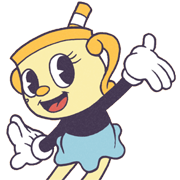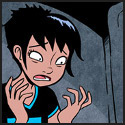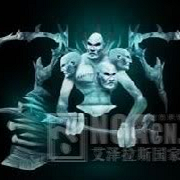|
AlphaDog posted:Mechanically, however, a sprite could tell what your alignment was should it ever need to and that's all I can actually find. In my opinoin, this is a good thing. I don't like the idea of alignment having any kind of presence outside of roleplay. Things like "this sword can only be used by the righteous (i.e. Lawful Good)" is fine, but things like "this class/race needs to be this alignment" is not good. The problem with the latter is that the terms "Good" and "Evil" have hard definitions in DnD, but are not necessarily subjectively good or evil. By that I mean, the drow are Evil, which is good to them. opulent fountain fucked around with this message at 05:46 on Sep 2, 2014 |
|
|
|

|
| # ? Jun 9, 2024 03:02 |
|
dichloroisocyanuric posted:In my opinoin, this is a good thing. I don't like the idea of alignment having any kind of presence outside of roleplay. Things like "this sword can only be used by the righteous (i.e. Lawful Good)" is fine, but things like "this class/race needs to be this alignment" is not good. The problem with the latter is that the terms "Good" and "Evil" have hard definitions in DnD, but are not necessarily subjectively good or evil. By that I mean, the drow are Evil, which is good to them. I would personally prefer it if alignment were just entirely ditched, or if there were a less stupid system like dividing everyone into "our friends" and "those fuckers"*. "The ring must be kept out of the hands of those fuckers but if we're not careful it might corrupt some of our friends". "The sword of win can only be wielded by our friends, as its touch is death to those fuckers". "This hat will turn our friend into one of those fuckers if he puts it on, or vice versa". "This cloak would poison our friends, but it will cause those fuckers to become invulnerable and start making GBS threads lightning at us" *I started this as a joke, but if you really had to have some mechanical difference between good guys and bad guys, you could literally just have two sides or factions or whatever instead of making people follow the overarching concept whatever plane is somewhere between CG and CN in this version. Elector_Nerdlingen fucked around with this message at 06:03 on Sep 2, 2014 |
|
|
|
So would magic items become our poo poo that those fuckers stole and we need to get back?
|
|
|
|
Vorpal Cat posted:So would magic items become our poo poo that those fuckers stole and we need to get back? Everything in the dungeon is actually our poo poo! Those fuckers only think it's theirs because they are currently holding it! I wasn't serious about dividing everything up like that, just items that might do different things to heroes and villains. I can see that stuff being fun mechanically. What's not fun (to me! to me! I'm sure people will tell me it's the only fun thing ever!) is having to explain to a newbie not only is their alignment Elector_Nerdlingen fucked around with this message at 07:07 on Sep 2, 2014 |
|
|
|
13th age has pretty well proven that you can almost entirely remove alignment and it has pretty much no impact on a d&d-like aside from reducing the amount of bullshit absurdly restrictive pseudo-philosophy. But of course you can't remove it from d&d proper because... [cue fiddler on the rooftop tradition song]
|
|
|
|
AlphaDog posted:If you are an orc who chooses to be good, you will struggle with your inherently evil nature for your whole life,
|
|
|
|
Kai Tave posted:Just wanna point out that Reign has totally random chargen that manages to be completely balanced and intermixable with point-buy chargen. It's not impossible to make random character generation that isn't also random capability distribution. You could easily have, say, a six stat array that ensures everybody gets a 16 in something and an 8 something else and an assortment of values in between and then simply randomly determine the order in which those stats are applied. Or you could do what the 4E-based Gamma World did which had all sorts of random character generation but was nonetheless designed to ensure that you had solid ability scores where it mattered most for the character you'd rolled up. Another one i'd note is was it. . Icons? That sought to duplicate the old FASERIP Marvel feel and process? I haven't played it but it seemed to do a decent job of it.
|
|
|
|
Jackard posted:Ha ha, goddrat. It's actually a bit worse than that. 5e PHB, p.122 posted:Humans, dwarves, elves, and other humanoid races can choose whether to follow the paths of good or evil, law or chaos. According to myth, the good-aligned gods who created these races gave them free will to choose their moral paths, knowing that good without free will is slavery. The evil deities who created other races, though, made those races to serve them . Those races have strong in born tendencies that match the nature of their gods. Most orcs share the violent, savage nature of the god, Gruumsh, and are thus inclined toward evil. Even if an orc chooses a good alignment, it struggles against its innate tendencies for its entire life. (Even half-orcs feel the lingering pull of the orc god’s influence.) See, it's ok to kill them! They're inherently evil because they were made as slaves...
|
|
|
|
"It's cool to kill [RACE] because everybody knows that evil is in their blood, plus they were meant to be slaves anyway, those violent, degenerate savages. That's just how god made them after all."
|
|
|
|
AlphaDog posted:It's actually a bit worse than that. Wait, really? That's not from some white supremacist's homebrew setting description or something like that?
|
|
|
|
OtspIII posted:Wait, really? It's also on page 34 of the free rules PDF if you want to go see it yourself.
|
|
|
|
The Basic rules also say this about Monster alignment. Basic posted:
|
|
|
|
So is that better or worse then "feminists, spiders and dark skin are signs of evil" Drow for unfortunate implication bingo?
|
|
|
|
MonsterEnvy posted:The Basic rules also say this about Monster alignment. Yes, the basic rules say that the DM is free to change a creature's alignment. Nobody told you that they didn't say this. The part that we are complaining about is where the basic rules (and player's handbook) say quote:Even if an orc chooses a good alignment, it struggles against its innate tendencies for its entire life. and just before it quote:According to myth, the good-aligned gods who created these races gave them free will to choose their moral paths, knowing that good without free will is slavery. The evil deities who created other races, though, made those races to serve them. Most orcs share the violent, savage nature of the god, Gruumsh, and are thus inclined toward evil. Pre-emptively, yes, if you ignore that whole paragraph, it's just like it's not there for you. But everyone else can still read it.
|
|
|
|
Orcs weren't created by Gruumsh though, they were born when Corellon Larethian took out Gruumsh's eye during their first battle and Gruumsh's blood spilled on the ground, the blood coming to life as the first orcs! But seriously, all this talk of "the good gods created these races, the evil gods created these races" is making me miss the fact that 4e's fluff had very few instances of the gods actually creating races. The dwarves were created as a slave race by the titans, servants of the settings big bad Primordials, and Moradin was basically just dwarf Spartacus who liberated the dwarves. The elven races weren't explicitly created by Corellon, Corellon was just the first among equals as it were, and the three branches of the elves people developed because of magical politics (i.e. eladrin were Corellon loyalists, drow were those who sided with Lolth and regular elves were the ones who went "gently caress politics" and migrated to the material plane). Hell, they never even explicitly stated that humans were created by any of the gods, although that didn't stop me from developing a headcanon where the god who created the humans was also the patron of Asmodeus (before he rebelled) and Asmodeus' act of rebellion was so powerful spiritually that it retroactively erased all memory of who the god was and what he had actually done as a god. This gave Asmodeus enough of a claim on humanity to later turn a significant portion of humanity to his service, i.e. Bael Turath. What I'm trying to say is that what little world-building 4e had was awesome and I'm going to miss it.
|
|
|
|
4e had plenty of great world building, but it was intended for use in play, so a lot of it is in how things work, and/or the general state of play in the cosmos. It also had some interesting stuff just for background's sake. Bane's origin is particularly good- he's called Bane because he was the Bane of the Primordials, the general of the Gods in their war, and they probably would have lost without him. The FR bane was incredibly dull, wheras the POL Bane came across more like a deity that somebody might actually worship. There's a bunch of interesting stuff like that in the pol background. For instance, most deities could not stand up to a primordial one on one, so they'd form essentially the first adventuring parties to take them down through teamwork. Only a few gods ever soloed a Primordial, one being Bane, and the others tending to come to a bad end (such as IO and Torog). Even then, they often could not destroy them, and just imprisoned or cursed them instead. All of this arose from a willingness to toss out the traditions, and rebuild stuff so that it served games and campaigns. 5e's aversion to 4e makes it likely that its lore will be little more than a pile of Refs that the proper people will Get. A Catastrophe fucked around with this message at 09:39 on Sep 2, 2014 |
|
|
|
Are there really any fantasy settings, D&D or otherwise, that doesn't do the thing where all gods are objectively proven to exists through direct communication with mortals and influence on the shape and functioning of the world? Whenever I think about gods in the average D&D setting, I get the impression of a bunch of petulant children in a sandbox, completely unable to get along and play nice together. It makes me wonder why all mortals (or just mortal adventurers) everywhere haven't banded together for the purpose of evicting the gods from existence already.
|
|
|
|
|
A Catastrophe posted:4e had plenty of great world building, but it was intended for use in play, so a lot of it is in how things work, and/or the general state of play in the cosmos. It also had some interesting stuff just for background's sake. Bane's origin is particularly good- he's called Bane because he was the Bane of the Primordials, the general of the Gods in their war, and they probably would have lost without him. The FR bane was incredibly dull, wheras the POL Bane came across more like a deity that somebody might actually worship. Yeah FR Bane come off to me as a lame version of Hextor. Of which I should note that Hextor appears to be the only lawful evil major figure that actually believes that when you make a promise or agreement you stick to the spirit of it, not the letter as long as you are not being stupidly suicidal about it. Hextor followers are supposed to do the same thing and stick to the spirit as well. An example given was that if a one of his Blackguard followers promised to not to kill a prisoner then they could not get around it by ordering someone else to kill it in their place, but if said prisoner attacked the Blackguard that it is fair game to kill. This already gives him more personalty then FR Bane. Slashrat posted:Are there really any fantasy settings, D&D or otherwise, that doesn't do the thing where all gods are objectively proven to exists through direct communication with mortals and influence on the shape and functioning of the world? Whenever I think about gods in the average D&D setting, I get the impression of a bunch of petulant children in a sandbox, completely unable to get along and play nice together. It makes me wonder why all mortals (or just mortal adventurers) everywhere haven't banded together for the purpose of evicting the gods from existence already. Because they tend to be very powerful and lots of people worship them. In places like Greyhawk the God Iuz has his own empire that he runs around in and rules personally. When he came back from a 50 year imprisonment the first thing he did was go back to his empire kill everyone that lost faith in him, betrayed him and those who made interesting sounds when they exploded. Then he built a road out of their skulls from his capital to his largest border city. As for gods that really do nothing in the D&D realms we have Ebberon were Divne Magic is powered by belief, but there is no proof their gods exist. MonsterEnvy fucked around with this message at 09:56 on Sep 2, 2014 |
|
|
|
Slashrat posted:Are there really any fantasy settings, D&D or otherwise, that doesn't do the thing where all gods are objectively proven to exists through direct communication with mortals and influence on the shape and functioning of the world? Whenever I think about gods in the average D&D setting, I get the impression of a bunch of petulant children in a sandbox, completely unable to get along and play nice together. Literal and interfering gods seem as much a part of half-assed fantasy settings as always-evil orcs. Slashrat posted:It makes me wonder why all mortals (or just mortal adventurers) everywhere haven't banded together for the purpose of evicting the gods from existence already. In BECMI you're explicitly not going to fight an Immortal and win (or at least, you're not going to "get rid" of them in any permanent way) but you can become one and then get involved in the petulant squabbling yourself. AD&D tells you you're not supposed to fight gods in the same supplement that provides combat statblocks for them, so gently caress knows what was going on there. 2e seems to take a per-setting approach to fighting gods or godlike things. I stopped paying attention to 3.x before they got to the god/immortal supplements, so I don't know what happens there. Presumably you can eventually take levels in Literally A God and it's still somehow not optimal, but it turns out that a level 2/4/3 vampire turbodruid munchkin-kin can kill gods if they also take this one feat from this one out-of-print semi-official book (but it's in a really lame way, like filling their home plane with infinite ladders). Elector_Nerdlingen fucked around with this message at 10:37 on Sep 2, 2014 |
|
|
|
AlphaDog posted:I stopped paying attention to 3.x before they got to the god/immortal supplements, so I don't know what happens there. Presumably you can eventually take levels in Literally A God and it's still somehow not optimal, but it turns out that a level 2/4/3 vampire turbodruid munchkin-kin can kill gods if they also take this one feat from this one out-of-print semi-official book (but it's in a really lame way, like filling their home plane with infinite ladders). That's an almost perfect description of Pun-Pun.
|
|
|
|
Well to be fair gods who directly interfere with the mortal realm were kind of a thing in things like Greek mythology and the swords and sandals adventures D&D draws inspiration from. It just misses the part where the gods are also huge assholes who spend most of there time seducing maidens, making adventures life's difficult just because they can, and petty squabbles with other gods. Even among the "good" or "lawful" gods, or at least as close to that as you got in Greek mythology.
|
|
|
|
neonchameleon posted:That's an almost perfect description of Pun-Pun. Yeah... e: Ok, this is me admitting that what I typed out is just what discussions of later 3.x sound like to me. I know vaguely what pun-pun is, but it's not really something I've memorised. I really did try to like 3e at the time, and I learned the rules, own the core books and a splat or two, and played a fair bit, but I never really got into building poo poo out of 20 different books like I did in 2e, and I never really had to learn all the little ins-and-outs and weirdnesses. When I played, it was usually "core books only". I didn't really DM much. Vorpal Cat posted:Well to be fair gods who directly interfere with the mortal realm were kind of a thing in things like Greek mythology and the swords and sandals adventures D&D draws inspiration from. It just misses the part where the gods are also huge assholes who spend most of there time seducing maidens, making adventures life's difficult just because they can, and petty squabbles with other gods. Even among the "good" or "lawful" gods, or at least as close to that as you got in Greek mythology. Well yeah, but what happens when you have Most of your gods are boring cardboard cutouts meant to evoke the mythological feeling of epic swords-and-sorcery stories like "I went to the physical representation of halfway between neutral evil and lawful evil". Elector_Nerdlingen fucked around with this message at 11:39 on Sep 2, 2014 |
|
|
|
EscortMission posted:At the same time they're probably not likely to walk into one of the actual Everburning Pits to get the Ruby Key of Na'eel. That one's probably below their pay grade. At some point with intelligent followers you can say "no man that's crazy nobody would do that." "When a fighter attains 9th level (becomes a “Lord”), he can automatically attract men-at-arms. These soldiers, having heard of the fighter, come for the chance to gain fame, adventure, and cash. They are loyal as long as they are well-treated, successful, and paid well. Abusive treatment or a disastrous campaign can lead to grumbling, desertion, and possibly mutiny" "In addition to regular men-at-arms, the 9th-level fighter also attracts an elite bodyguard (his “household guards”). Although these soldiers are still mercenaries, they have greater loyalty to their Lord than do common soldiers." You are literally incorrect. There is no pay grade. So long as your campaigns rule, your fighter companions are with you to the end. quote:4e lore Remember that the intended fanbase for 5e is upset that 4e tieflings are literally mentioned at all because it ruined D&D forever for them along with everything else. They got angry at Dragonborn getting stats because it meant those filthy 4e players might have something they enjoyed. 5e is and always has been Revenge Edition. ProfessorCirno fucked around with this message at 11:56 on Sep 2, 2014 |
|
|
|
I really, really liked the 4e lore. It was evocative, but with plenty of room to make it your own.
|
|
|
|
ProfessorCirno posted:"When a fighter attains 9th level (becomes a “Lord”), he can automatically attract men-at-arms. These soldiers, having heard of the fighter, come for the chance to gain fame, adventure, and cash. They are loyal as long as they are well-treated, successful, and paid well. Abusive treatment or a disastrous campaign can lead to grumbling, desertion, and possibly mutiny" I think there are some implied limits to what a presumeably rational guy will do even for a brave and mighty hero who promises glory beyond death, but you're right, its clearly not spelled out that they won't do anything immediately suicidal. If you say they're hardcore enough to walk directly into a literal holeful of fire that will literally burn them to death immediately, OK, man, they're hardcore. If I don't have to take the damage I won't. Its honestly kind of a minor point of debate in a system intentionally built on houserules, I just liked having a posse and running a kingdom in the background. 
|
|
|
|
It spells out that they'll react to abuse or mistreatment. The important thing to take home is that Fighter Club was a built-in, baked-into the rules way for the fighter to have agency in the story, much the same way spells are.
|
|
|
|
Vorpal Cat posted:Its sad because thing like the amazing art show that at least someone on the team is talented and passionate about what they are doing but so much of the rest of the game just seems like
|
|
|
|
EscortMission posted:I think there are some implied limits They are loyal until you start loving up or treat them like poo poo. That is literally what the text says. The only limits that get "implied" are the ones that come from "But they're fighters!" and that comes from at this point outright ignoring the actual rules.
|
|
|
|
Slashrat posted:Are there really any fantasy settings, D&D or otherwise, that doesn't do the thing where all gods are objectively proven to exists through direct communication with mortals and influence on the shape and functioning of the world? Whenever I think about gods in the average D&D setting, I get the impression of a bunch of petulant children in a sandbox, completely unable to get along and play nice together. It makes me wonder why all mortals (or just mortal adventurers) everywhere haven't banded together for the purpose of evicting the gods from existence already. Evernight for Savage Worlds all mentioned the goads in passing. In fact there was even a scene where the players stumble on some mystical footage of Elven and Dwarven precursors. The elves being lanky arboreal creatures and dwarves being burrowing carrion eaters.
|
|
|
|
ProfessorCirno posted:They are loyal until you start loving up or treat them like poo poo. That is literally what the text says. That's what I was saying though. "Tonight we valiantly assault Everburning Pits of the Lava-Liche, who's with me, men?" vs "Walk into that burning pit and get that plot item, would you" are just two different levels of loyalty. The second one is more likely to get a response along the lines of "haha, good joke man, but seriously how are we gonna get that plot item" unless you're really good at psyching your allies up. Of course the 5e bone horde gets to have both levels but that's neither here nor there.
|
|
|
|
I really think the strength of the Fighter Posse comes from just having that many super loyal dudes at your disposal; Especially in non-combat situations. You might not be able to magically identify a strange plot-related plant, but a farmer in your employ has probably seen it before. You can't magically craft armor and swords, but odds are there's a blacksmith on the payroll, or at least one of your guys knows his way around a forge. A lot of spells emulate work that could otherwise be done by dedicated men. Well, here are those men.
|
|
|
|
"Spells" like shield walls, cavalry charges, and esoteric group knowledge could actually make a general type fighter really interesting and give him a concrete ability to force narrative while still keeping unique identity.
|
|
|
|
I think it was the last thread where this was hashed out in a lot of detail. It was a fun discussion.
|
|
|
|
TKIY posted:If one guy sitting at the table is constantly taking twenty five minutes to play one combat round because he's rolling attacks and planning moves for thirty skeletons and then tracking hits against, etc, the fighter isn't bored because his character is useless, he's bored because it takes a half an hour for his round to come around every time. If someone's planning moves for 30 skeletons, they're cheating. You can give ONE order to one-or-more undead. Same order to all of them. You can't "plan moves for" the skeletons; they just have to follow their trivial order directly. They are not smart enough for "planning moves" to be an issue.
|
|
|
|
AlphaDog posted:Literal and interfering gods seem as much a part of half-assed fantasy settings as always-evil orcs. Which is why Eberron, having neither of those things, is the best D&D setting ever. Having said that, I don't think literal and interfering gods are necessarily a bad thing in fantasy settings, but at least in D&D they come with the baggage of no moral ambiguity being present. Like, we already mentioned Greek myths, and they're a prime example of what happens when you have the gods being actively messing up human affairs but also having a degree of moral ambiguity. There's a lot of interesting stuff you could do in terms of worldbuilding with literally existing gods if you don't write them up as the good team, the evil team and the neutral team. As was mentioned already, 4e had this to an extent: the gods may have been of differing alignments, but when they all hit divine puberty at the same time and went "gently caress you dad!" to their primordial masters they worked together to kick primordial rear end. The idea of the gods presenting a unified front against a common enemy when need be already gives them more of a mythical resonance than "there are good gods and evil gods and sometimes they fight each other." It feels really Norse, for lack of a better term, because even though the Aesir weren't always on the best of terms with each other (Loki was kind of an rear end in a top hat to Thor a number of times) when it came time to kick giant butt they presented a unified front (and even Loki showed that he could help his bro Thor out when it came to embarrassing the giants). You can do lots of interesting stuff with literally existing and active gods, but the evil team/good team stuff just makes it boring. Make all the gods unaligned (because once you have that kind of cosmic power petty mortal ideas of morality are beneath you) and have them do their own petty squabbling amongst each other, and you'll get some entertaining drama out of it. Plus, the implications of being excommunicated or having a crusade declared on you are somewhat more interesting when it's literally a divine being doing it and not a guy in a silly hat. "This week, Corellon Larethian is calling a crusade on the gnomish people after a prank pulled on him by Garl Glittergold went too far."
|
|
|
|
Kai Tave posted:"No see, if you don't care about quality then lack of quality isn't actually a flaw to begin with. All you need to do is redefine success enough times and you'll eventually get there." "Balance" and "quality" are not the same thing. 4e is clearly better-balanced than 5e, but a lot of people enjoy it less because there's less play-style differentiation between classes and the mechanics are a lot more complicated. I won't know more until I get more play time in, but right now my impression is that I'll have more fun playing 5e, despite the obvious ways in which I can argue that 4e is a "better" system. You're starting with this presupposition that balance is a very high priority, and any game which doesn't put it at a high enough priority has failed at the Objective Measure Of Worth And Value. You're starting with a definition that a "quality" game must be balanced, and that no other qualities can make up for that. I don't buy that assumption, though. And keep in mind, I do think 4e was a more-fun game than 3e, because I liked having an option for fighters other than "roll to hit". 5e does at least give fighters (at 5+ levels) the option of moving and making more than one attack. I can't imagine playing a fighter in 5e and not picking battle master, but if I picked battle master, I think I'd have fun playing that. Fewer options than I'm used to (I mostly play diviners, wizards who specialize in divination, and specialist wizards who selected the divination school), but more interesting than the options were in 3e.
|
|
|
|
Slashrat posted:Are there really any fantasy settings, D&D or otherwise, that doesn't do the thing where all gods are objectively proven to exists through direct communication with mortals and influence on the shape and functioning of the world? Whenever I think about gods in the average D&D setting, I get the impression of a bunch of petulant children in a sandbox, completely unable to get along and play nice together. It makes me wonder why all mortals (or just mortal adventurers) everywhere haven't banded together for the purpose of evicting the gods from existence already. Dark Sun? There are clerics (because doing away with magic healing was a little too advanced way back in 2E days), but they get their powers from the elemental planes, who couldn't really give a poo poo about humans. As regards alignment ... it seems to me that 5E's system of traits, bonds, and flaws, or whatever they're called, exposes alignment as the useless cruft it is. I was looking over the pregens from the starter set and noted that without fail, the traits etc. told me more about what each character believed and wanted than some dumb two-word phrase that no one has been able to agree on the meaning of in 35 years. As for the Fighter Posse, the problem I always had with it back in the day when fighter followers were a thing was that taking a bunch of 1st-level veterans along on a 9th-level adventure was rarely worth it. One fireball, cloudkill, or dragon breath, and your band of sworn brothers was a collection of smoking boots even if they made their saves.
|
|
|
|
The Bee posted:"Spells" like shield walls, cavalry charges, and esoteric group knowledge could actually make a general type fighter really interesting and give him a concrete ability to force narrative while still keeping unique identity. Except you have 2 dozen other sentient human beings and their gear following you about at all times in order to give him that "agency". Which creates issues in a lot of situations.
|
|
|
|
Mr Beens posted:Except you have 2 dozen other sentient human beings and their gear following you about at all times in order to give him that "agency". Which creates issues in a lot of situations. Seebs, there is a FUCKTON of playstyle differentiation between 4e classes. Just because they gain abilities the same way does NOT mean they PLAY the same way, even within the same role.
|
|
|
|

|
| # ? Jun 9, 2024 03:02 |
|
Selachian posted:As for the Fighter Posse, the problem I always had with it back in the day when fighter followers were a thing was that taking a bunch of 1st-level veterans along on a 9th-level adventure was rarely worth it. One fireball, cloudkill, or dragon breath, and your band of sworn brothers was a collection of smoking boots even if they made their saves. Only the elite troops have levels. Which means that they can gain experience. They're not all that weak, either - they might be knights in field plate, or rangers, or berserkers, or fighter-mages. Not to mention the 5th-7th level "leader" who potentially comes with his own sidekick. So at 9th level the fighter can potentially get 10 fighter/wizard companions, a sidekick, and maybe a mini-sidekick. Who can all level up. Let that poo poo sink in. If that fighter gets half those dudes to survive until 5th level, he can now cast 20 1st level, 10 second level, and 5 third level spells/day by proxy. He's a tank, with a tank buddy, maybe a mini-tank, and definitely artillery support. If that's not enough, he's got another 100+ dudes with spears or something sitting outside just waiting to help. Removing this changed nothing.
|
|
|





























